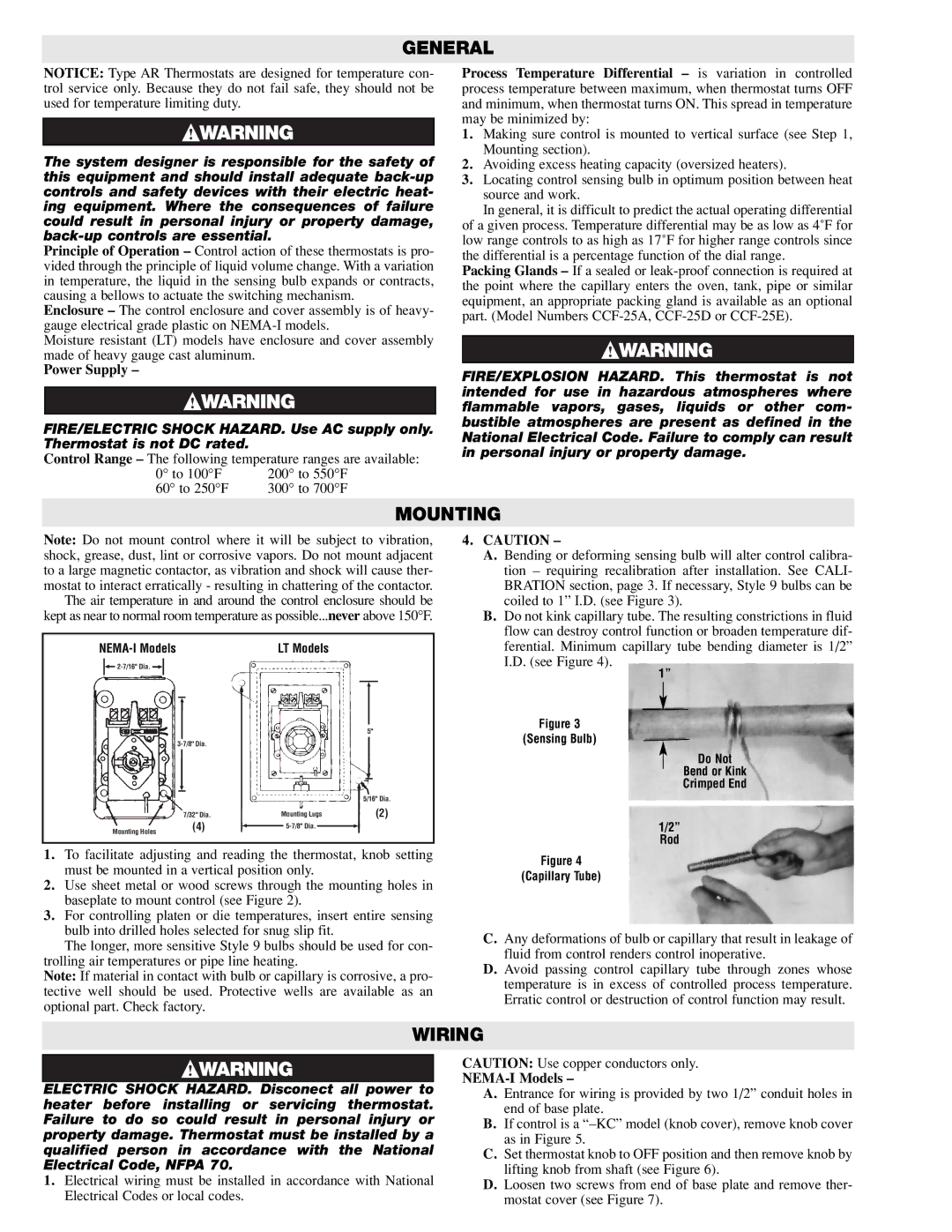PK405-18 specifications
The Chromalox PK405-18 is a highly regarded electric heating solution designed to meet a wide array of heating requirements across various industrial applications. This versatile product is known for its robustness, efficiency, and innovative features, making it a popular choice among engineers and facility managers.One of the standout characteristics of the PK405-18 is its powerful heating performance. With a wattage output that allows it to provide rapid heat, it is capable of heating fluids and gases effectively. The PK405-18 utilizes advanced heating technology to ensure a uniform temperature distribution, which is vital for processes that demand precise thermal management.
The construction of the PK405-18 is another key feature that sets it apart. It is built with high-quality materials that ensure durability and longevity, even in the most challenging environments. This is particularly important for industries such as oil and gas, chemical processing, and food and beverage, where equipment is often exposed to harsh conditions.
The PK405-18 also incorporates advanced safety features. It typically includes built-in thermal overload protection, which helps prevent overheating and potential damage to the system. This focus on safety not only protects the equipment but also ensures the safety of personnel working in proximity to the heating unit.
In terms of installation and operation, the PK405-18 is designed for ease of use. It can be integrated into existing heating systems with minimal modification, and its user-friendly controls allow for straightforward temperature adjustments. This adaptability is essential for maintaining efficient operations in dynamic industrial settings.
The PK405-18 is also noted for its energy efficiency. With rising energy costs and increasing environmental concerns, the design of this heater ensures that it delivers optimal performance without excessive energy consumption. This characteristic aligns with the trend towards sustainable industrial practices, helping companies reduce their carbon footprint and operational costs.
In conclusion, the Chromalox PK405-18 is an exemplary product characterized by its powerful heating capabilities, robust construction, advanced safety features, ease of use, and energy efficiency. These qualities make it an invaluable asset for a variety of industrial applications, ensuring effective thermal management while prioritizing safety and sustainability. As industries continue to evolve and seek more reliable heating solutions, the PK405-18 stands out as a top choice for modern applications.

